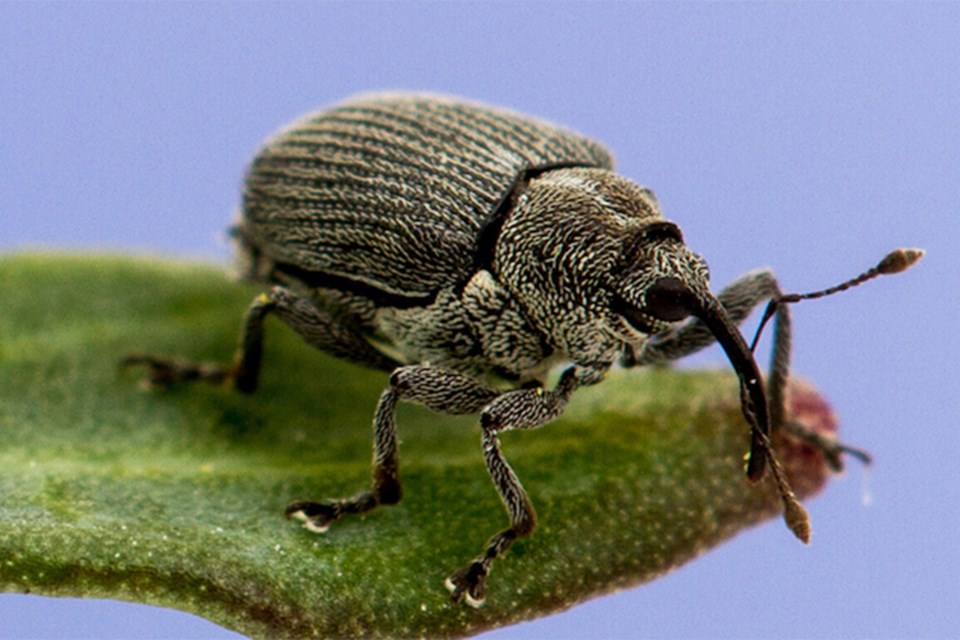MOUNTAIN VIEW COUNTY - The county’s agricultural service board (ASB) has received the results of the 2022 insect survey, which found no cabbage seedpod weevil anywhere in the county.
The review came during the board’s April 17 meeting, held in person and online. The board is made up of county councillors and appointed members of the local agriculture community.
The 2022 survey looked at Bertha armyworm, cabbage seedpod weevil, diamondback moth, pea leaf weevil and wheat midge.
The Alberta Insect Pest Monitoring Network (AIPMN) conducts the annual survey, with a team of surveyors using sweep net and soil samples to gather information for insect survey and population maps. Officials provided the findings in Mountain View County to the board.
“This work helps the network to understand insect populations and range expansion of the targeted insects so that industry can understand the risk and potential damage,” administration said in a briefing note to the board.
“The information gathered from pheromone traps, field insect collections and counts or damage assessment is used to create forecast maps and make control recommendations.”
The data is also used to direct insect pest research priorities and/or in research studies.
The 2022 survey found that counts from Bertha armyworm traps were all well below the first warning level of 300.
“Research has clearly shown that very few fields are ever affected in an area with moth catches less than 300,” the surveyors said. “Even at higher moth counts field scouting is critical for pest management decisions because experience has shown that field to field and even within field variations can be very large.”
Regarding wheat midge, the surveyors said it is not a concern based on the five soil samples considered.
“There were a couple of midge cocoons in one of the fields. This is too a concern, but producers and agronomists should still pay attention to monitor fields in 2023 while the wheat flowers as there may be individual fields that have higher numbers. Decent soil moisture levels in June and/or delayed seeding favour wheat midge outbreaks.”
Regarding diamondback moth, the surveyors said, “There were two diamondback moth trap sites in your area in 2022. There were no moths caught, indicating that there was not a May migration into the province.”
Pea leaf weevil damage was low in surveys conducted in May and June.
“Experience has shown that high number of pea leaf weevil adults in the fall will likely mean significant infestation levels in the following spring,” the surveyors said.
Board members accepted the insect report as information.



